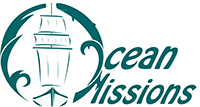Clear evidence worldwide show that most of our oceans and seas are highly polluted with marine litter, particularly plastics and fishing gear, among other types of toxic products. Nowadays, we know that over 220 million tons of plastic are produced each year. Plastic debris causes the deaths of more than a million seabirds every year, as well as more than 100,000 marine mammals (UNESCO, 2019), while ghost nets kill thousands of animals annually.
Why 66º North Iceland?
Standing for the Voices of the Seas at the Edge of the Arctic...
The wild voices of Iceland and the Seas…
Icelandic cold waters represent a unique paradise for many marine creatures and it is a strategic place from the conservation perspective that needs to be preserved. It is known that more than 20 different species of cetaceans can be found in these nutrient rich feeding grounds. These species includes migratory whales like humpback whales, blue whales (even exceptional hybrids between blue whales and fin whales have been found) and other rare, and therefore little known, species like northern bottlenose whales. On top of this, some of the largest colonies of seabirds still can be found here including the Atlantic puffins (Fratercula arctica).
One of the most privileged places for wild life encounters…
Wildlife watching (especially whale or bird tours) is one of the main reasons for visitors to come to Iceland and the tourism sector represents already near 50% of income for the economy of the country. Unfortunately, marine mammals and seabirds are one the list of the most vulnerable animals to marine littering and plastic pollution and therefore, the ones suffering the most terrible consequences. Controversially, hunting activities like whaling are still occurring. Iceland has the potential of become a world leader on sustainable tourism and green energy.
Ocean Missions and Iceland
Ocean Missions wants to highlight the value of the oceans not only for their marine resources, but also the value of knowledge and education about our marine ecosystems from a biological perspective.
The Polar ice melting due to climate change is already a fact and a serious issue that is causing huge changes in the oceans worldwide. Small changes in temperature, salinity or pH can lead to catastrophic consequences for all marine life as well as unknown consequences for the human race. For this reason, there is a strong need to educate and encourage young generations to contribute to the gathering of scientific information and knowledge, which can be of importance for urgent scientific studies about ocean health.
Pure science seems to be not enough to make a rapid change and take action. We need everyone onboard to take action and build up solutions. In this context, citizen science has become a powerful awareness tool for bringing new knowledge and it has been increasingly used even more in environmental management plans worldwide.

